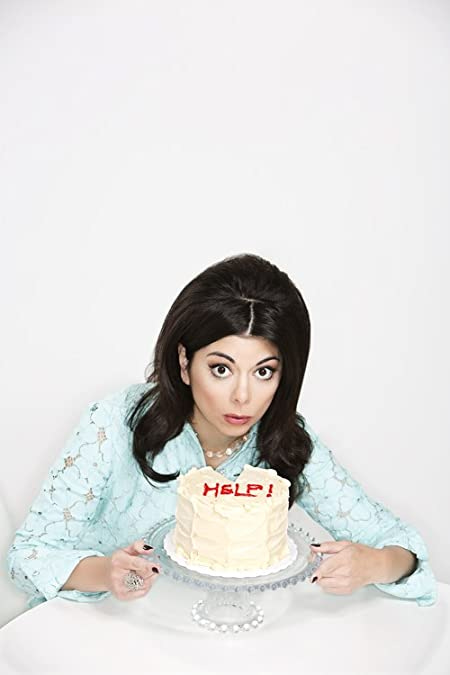SIX QUESTIONS WITH TESS RAFFERTY
Better Fed Than Dead and Other Dilemmas
Tess Rafferty is a writer of TV, fiction, and political commentary. She has written for numerous comedy variety shows including Martha and Snoop’s Potluck Party Challenge, @Midnight, The Comedy Central Roast of Roseanne and The Soup with Joel McHale. For the last several years she has been writing and developing for scripted television as well, in both the comedy and drama genres.
Tess made her debut as an author with her memoir Recipes for Disaster (St. Martin’s Press.) The Red, the Fed & the Dead is the third book in her Kat Kelly series.
The creator of 2017’s Take Back the Workplace March Against Sexual Harassment, Tess is a featured blogger for Ms. Magazine and Dame, writes the cooking/political blog Recipes for Resistance, and has written extensively about her Italian travels on her website, tesrafferty.com. Her essay, “The Revolution Will Be Catered” was featured in Rage Baking: A Collection of Recipes and Conversations for Our Time (Simon & Schuster.) Tess’s video Aftermath, shot in the days following the 2016 election, has received over 50 million hits on Occupy Democrats.
Tess lives on the coast of the 405 in Los Angeles, California with her husband, three ungrateful cats, and a passport always at the ready.
1 - Which writer who came before, do you admire the most?
Simone deBeavoir. She gets a lot of attention for The Second Sex, and rightly so, but her fiction is what drew me to her. The Mandarins is epic; I’ve lost count of how many times I’ve read it. And All Men Are Mortal I found so profound. (Although it’s been a moment since I read it. Maybe I should re-read before throwing words like “profound” around.) But I still think about it often, especially in these times. Is it useless to try to change things when mankind is doomed to just keep repeating the same awful patterns? Or must we try to change things because we have but one brief life and it’s what is happening now that matters? I tend to side with the latter, but some days I do feel the frustration of the former.
2 - Which teacher(s) had the most profound effect on you?
I had an Art History teacher at Emerson College, Joan Brigham, who really changed the way I experienced, thought and wrote about art. I think I ended up taking 3 or 4 courses with her, all modern and post-modern art. Going to museums and seeing new exhibits is something I take so much pleasure out of still. Sometimes it finds its way into my work, but most of the time it’s just for me to enjoy. She’s a working artist, too, and would invite her students over to her home in Cambridge for dinner. I love great conversation over good food; there’s no better way to spend your time and she helped to instill that in me.
3 - Besides writing, what’s your favorite hobby or passion?
Travel, food, wine. Basically, living La Dolce Vita. I love to cook and find it’s a great antidote to writing. There’s a beginning, middle and end to the process and when you’re done you have something you can enjoy in the moment, as opposed to something you have to wait and see if someone is going to grind down your joy for, before maybe paying you for it.
Travel, too, is wonderful for perspective. When you’re standing in front of a 2,000 year old building, it’s hard to feel like what someone said about your work on Twitter matters.
4 - What is something that those who don’t write fiction do not know or understand about it?
I think the way in which we can borrow from real life in one moment, and then completely fictionalize something in the next. I think people tend to look at something in a book as being true, especially if there’s overlap with your actual life or a real person. It’s harder to understand that the truth is at our convenience as writers. It’s freeing as a creator, but also leaves you feeling unintentionally exposed as a person.
I also feel people wouldn’t understand all the bizarre thoughts you have as a writer that would be in poor form to say out loud. For example: if someone loses a spouse in real life, the writer in you may start imagining them meeting someone at the funeral. That’s our bread and butter; how we think of the next idea or plotline. But it’s also an impulse that you can’t control and I don’t think everyone would understand or appreciate it.
5 - Can you think of a key breakthrough moment in your work, for you, that you’d be willing to share?
Recently I had the realization that I was only going to get better at this, the flip side of which is that I’m not perfect at it now, but I accepted that that was OK. I literally had the thought, “Not everything is going to be perfect on this book; it’s only your second.” I think we associate the idea that we’re still learning as somehow being unprofessional. Like somehow we’re not worthy; why should people pay for us to “learn?” But everyone should be learning constantly. Every night Joe Biden goes to bed knowing something he didn’t know when he woke up in the morning. We should encourage this mentality. I should hope that each one gets better. Otherwise you’re stagnating.
6 - What’s next for you?
Oh, god. *deep sigh* I have a couple of TV projects that I hope to be able to talk about soon. And I have an idea for a new ½ hour spec that I want to start writing in November. Plus, I’ll have to start planning the new Kat Kelly!



